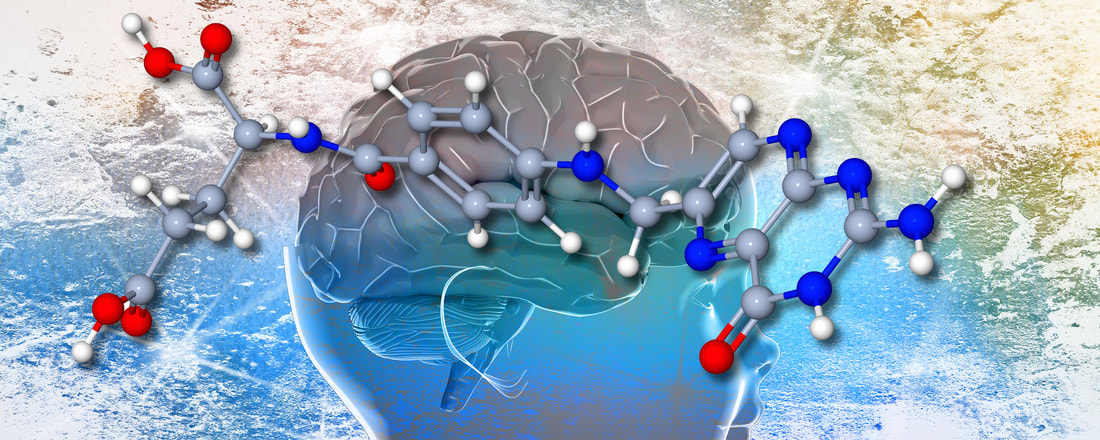|
Research is revealing that a number of pediatric patients with autism reflect low folate in their brains and that this “cerebral folate deficiency (CFD) may be treatable with certain medications, specifically d,l-leucovorin calcium (also known as folinic acid). Leucovorin is a long-used compound similar to folic acid, which is a necessary vitamin. It also is frequently prescribed in combination with the chemotherapy drugs fluoruracil and methotrexate.
CFD is a neurodevelopmental disorder typically caused by folate receptor autoantibodies (FRAs) that interfere with folate transport across the blood-brain barrier. In some studies when CFD is present, autism spectrum disorder and related symptoms have shown improvements with administration of folinic acid. Folate and its importance to the brain. Folate is a water-soluble B vitamin that is essential for normal neurodevelopment; folic acid is the synthetic derivation of this vitamin B9. Abnormalities in the folate and related pathways have been identified in children with ASD. One of these abnormalities involves a partial blockage in the ability of folate to be transported into the brain utilizing the primary transport mechanism, the folate receptor alpha. Autoantibodies which interfere with the function of the folate receptor alpha called folate receptor alpha autoantibodies have been identified in 58%-76% of children with ASD and independent studies have demonstrated that blood titers of these autoantibodies correlate with folate levels in the cerebrospinal fluid.1 ASD also has been linked to abnormalities in folate metabolism. Polymorphisms in folate genes may act in complex polygenic ways to increase the risk of developing ASD. Autoantibodies that block folate transport into the brain have been associated with ASD and children with ASD and these autoantibodies respond to high doses of a reduced form of folate known as folinic acid (leucovorin calcium). Some of the same abnormalities are also found in mothers of children with ASD and supplementing folate during preconception and gestational periods reduces the risk to the offspring from developing ASD. These data suggest that folate pathway abnormalities may be a major metabolic disturbance underlying ASD that can be leveraged as biomarkers to improve symptoms and prevent ASD. Treatment and recommendations. In a study, d,l-leucovorin calcium or folinic acid was used for the treatment of folate pathway abnormalities in children with ASD. Children with FRAs were treated with oral leucovorin calcium in two divided doses (2 mg kg−1 per day; maximum 50 mg per day). Researchers noted that “compared with controls, significantly higher improvement ratings were observed in treated children over a mean period of 4 months in verbal communication, receptive and expressive language, attention and stereotypical behavior. Approximately one-third of treated children demonstrated moderate to much improvement. The incidence of adverse effects was low.”2 Study author and renowned autism researcher Dr. Richard Frye, pediatric neurologist and Chief of The Division of Neurodevelopmental Disorders at Phoenix Children's Hospital, noted that mitochondrial support is needed in addressing neurodevelopmental problems. Additionally, he has found that folate positively influenced several aspects of mitochondrial function, including increasing Complex I activity and strengthening the coupling between Complex I and Citrate Synthase. His recommendations for leucovorin include preparations that ideally are compounded in order for the least amount of additives that can potentially cause sensitivity issues in many children with ASD. ASD is a heterogeneous neurodevelopmental disorder defined by impairments in social-communication as well as the presence of restricted interests and repetitive behaviors with the prevalence estimated to be about 1 in 54 children in the United States. If we maintain the current trajectory it is estimated that by 2030 one in two children could be born on the spectrum. With these kinds of concerning figures, it is imperative that we identify opportunities not only for treatment, but also to potentially inhibit the development and/or progression of these related disorders. Given that we know folate deficiency to be implicated in other neurological conditions such as cognitive decline and dementia, treatment with appropriate forms of folinic acid could very well be an effective ongoing option that certainly bears further research and review. Click here to view a conversation with Dr. Frye about compounded leucovorin. In hope and healing, Dr. Suzanne Gazda References: 1 Frye, R., Slattery, J.C., Quadros, E.V. Folate metabolism abnormalities in autism: potential biomarkers. Future Medicine. (2017) https://doi.org/10.2217/bmm-2017-0109 2 Frye, R. E., Sequeira, J. M., Quadros, E. V., James, S. J., & Rossignol, D. A. (2013). Cerebral folate receptor autoantibodies in autism spectrum disorder. Molecular psychiatry, 18(3), 369–381. https://doi.org/10.1038/mp.2011.175
0 Comments
Your comment will be posted after it is approved.
Leave a Reply. |
Authorby Suzanne Gazda M.D. Archives
August 2021
Categories |

 RSS Feed
RSS Feed